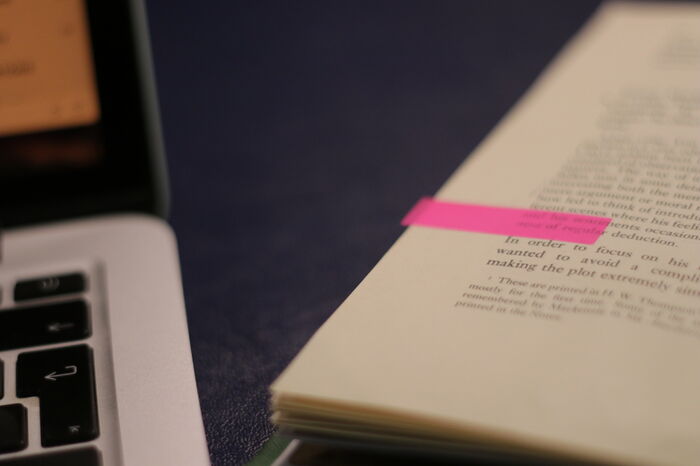The student looking to make Cambridge a little less lonely
Belle George talks to creator of Cam Connect, Emma Drewett, about the platform connecting Cambridge students

Emma Drewett, creator of the newly-launched online platform Cam Connect, says she “never really considered Cambridge as an option” growing up. It wasn’t until she attended talks and visits to the University, organised by access groups, that she contemplated applying. Fast forward a few years and Drewett is heading into her second year studying English at Jesus. Drewett spoke to Varsity about how the isolation and pressure she felt in her first year at Cambridge prompted her to set up the platform which, in just a few weeks of being active, is quickly on its way to 100 members.
A member of the Varsity team mentioned Drewett’s post on the Official Cambridge Freshers Facebook group, explaining the creation of Cam Connect. Having myself noted the difficulty of creating intercollegiate friendships, Drewett’s goal of connecting people who otherwise wouldn’t cross paths seemed like an idea that could create tangible change for students across Cambridge.
I ask Drewett about her university experience so far. She is immediately and refreshingly honest. “Before Cambridge, I never struggled to socialise; I always considered myself to be loud and outgoing, which is why it came as a surprise to me to discover characters far bolder than I was.”
“As a result of my diminishing confidence, I worked incessantly, feeling the need to compensate for what I believed to be lacking in comparison to my peers”
She goes on to explain in more detail the cause of her first year struggles. “Overwhelmed by the diversity in personalities and character types, I began to lose confidence in myself, becoming quieter and doubting whether I would fit in”. She added that she was “already apprehensive about [her] ability,” and found her sense of ‘imposter syndrome’ was exacerbated by “meeting people “far more confident and self-assured” than she felt. She said that this “was enough to encourage me to find refuge within the comfort of my room, and shy away from new opportunities and new faces”.
Drewett’s experiences are not unique. I remember meeting the second years studying HSPS at my college on my second day in Cambridge. Another fresher quizzed the second years about third year papers – I hadn’t even given thought to which papers I’d be taking in first year yet. It was intimidating. The ‘imposter syndrome’ Drewett speaks of is widespread in Cambridge. It can be especially daunting for freshers, prompting some people to feel pressured to ‘prove’ they are worthy of their place through excelling academically. This pressure can lead to social isolation, as Drewett herself found. She said that as a result of her “diminishing confidence”, she “worked incessantly, feeling the need to compensate” for what she believed herself to be lacking.
Additionally, many Cambridge students report difficulty in making friends on their course, exacerbating feelings of isolation. This is particularly common for arts students, who lack the one-on-one peer interaction experienced by science students in labs. Low contact hours and large numbers mean the likelihood of sitting next to the same person repeatedly in lectures is low. And beyond freshers how many of us continue to introduce ourselves to the person sitting next to us? Emma explains that English students seldom use their second year group chat, aptly named ‘huge scary engling chat’, to reach out to one another. “Personally, I find messaging the group chat highly daunting and I am sure other students share in this experience.” Jokingly, she adds “Maybe a name change is in order: ‘huge friendly engling chat.’”
I was shocked to hear that I was not alone, which was encouraging at first but I was left saddened by the number of students struggling to strike the correct balance or to fit in
Pressure to excel, coupled with social isolation is a deadly combination. They exacerbate one another: working ceaselessly prevents socialising and being socially isolated can lead to a false impression that peers are cruising through academic work while you struggle to cope. Groups and platforms that connect students so they can support one another have an important role to play in alleviating this cycle.
What prompted Drewett to act on her feelings of isolation was her discovery of Camfess, the anonymous confessions Facebook page that revealed to her the number of students experiencing the same emotions of isolation and stress as she was. “I was shocked to hear that I was not alone, which was encouraging at first but I was left saddened by the number of students struggling to strike the correct balance or to fit in. I decided that something needed to be done to tackle the issue.” And thus Cam Connect was born.
Drewett explains Cam Connect is what it says on the tin: an online platform through which students can connect with other students for advice, support and breaks from studying. Highlighting that many music or sports societies have a “competitive rather than casual” nature that can be daunting for some students, Drewett says that “Cam Connect stands in as an informal society for lovers of walks, talks, coffees, and cinema trips,” offering a “simple platform to meet new people and do more ‘normal’ friendship establishing activities.”
The platform is undoubtedly a step in the right direction for those looking to form more intercollegiate friendships, and Drewett notes that it has already begun to be successful, offering advice to international students who identified the lack of a Moroccan society at Cambridge. One hopes this is only the first of many future small successes for the online platform, that will snowball to contribute to a more inclusive and connected Cambridge.
 News / Eight Cambridge researchers awarded €17m in ERC research grants27 December 2025
News / Eight Cambridge researchers awarded €17m in ERC research grants27 December 2025 News / Downing investigates ‘mysterious’ underground burial vault 29 December 2025
News / Downing investigates ‘mysterious’ underground burial vault 29 December 2025 Lifestyle / Ask Auntie Alice29 December 2025
Lifestyle / Ask Auntie Alice29 December 2025 Sport / Hard work, heartbreak and hope: international gymnast Maddie Marshall’s journey 29 December 2025
Sport / Hard work, heartbreak and hope: international gymnast Maddie Marshall’s journey 29 December 2025 Interviews / Meet Juan Michel, Cambridge’s multilingual musician29 December 2025
Interviews / Meet Juan Michel, Cambridge’s multilingual musician29 December 2025










